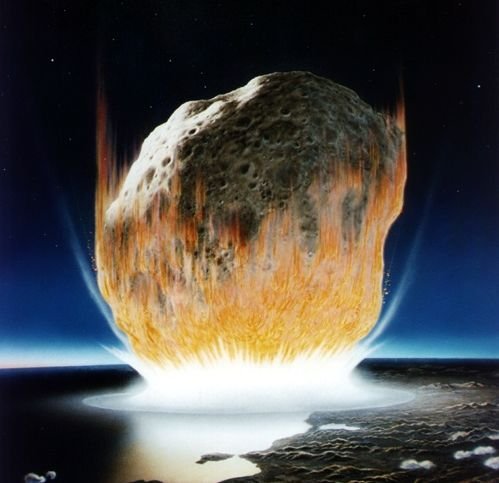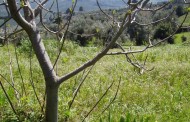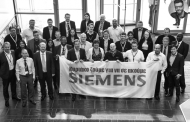March 13, 2013 • 11:12AM
The Russian Federation Council, the upper house of Russia’s parliament, held a special meeting on March 12 on the subject of the defense of earth from space objects. The special session centered on a “round-table” discussion involving three ministries of the Russian government, two of whose ministers participated personally, along with the head of Russia’s space agency Roskosmos; the head of the Energiya state rocket-booster company; and other top experts including three specialists from the Russian Academy of Sciences, according to a Russian-language wire from the government news agency RIA-Novosti.
The following is an initial report:
Boris Shustov, Director of the Institute of Astronomy of the Russian Academy of Sciences (RAS), said that to be able to defend ourselves from dangerous cosmic objects, we need a combination of earth- and space-based sensors. Special telescopes are needed, like one which exists in Russia’s Baikal region. We also need wide-angle telescopes, which Russia doesn’t have yet, but should build, combined with space-based systems.
Viktor Lopota, president of Russia’s (state-owned) Energiya rocket corporation, which builds the worlds biggest currently-operating launch vehicle, said that super-heavy launch vehicles will be required for the defense against meteors. He said the US is planning to have one with a capacity of 70 tons by 2017, and a successor with 130 tons capacity. (Certainly not under Obama — ed.) Russia should produce such larger rockets as well.
Alexander Ipatov, Director of the Institute of Applied Astronomy of the RAS, said that NASA has found 800,000 near-earth objects, but some specialists judge that that only comprises 2% of the total.
Oleg Shubin, director of testing for nuclear warheads and military nuclear energy systems for the Russian atomic agency Rosatom, said that nuclear explosions will be necessary to deflect any asteroid over 1 km diameter. He said this will require going beyond the megaton class of nuclear explosives, (presumably to the gigaton class, which has never been done). This is possible to do from a technical standpoint, he said, but there are questions about the nuclear test-ban treaty and the non-proliferation treaty.
Another panelist was Boris Chetverushkin, director of the Keldysh Institute of Applied Mathematics of the RAS.
Vladimir Popovkin, director of the Russian space agency Roskosmos, announced that Defense Ministry and Academy of Sciences officials will make up a working group to launch proposals for the creation of a unified system able to defend against asteroids and other “cosmic threats.” The time has come, he said, to join efforts and resources to face this threat, given that an anti-asteroid defense of the Earth is a mission requiring international cooperation. Among other things, what are needed are development and increase in the efficiency of observation systems for small bodies and space junk and their classification, as well as design and trial runs of the means to act against these threats. He also emphasized the need to be prepared to send exploration missions to asteroids and comets that represent a potential threat to the Earth. “The selection of the concrete method of action should be done as a function of the size, mass, composition and properties of the dangerous object,” he said.
Russian Minister for Emergency Situations Vladimir Puchkov said that the “international cooperation in the field of an early warning systems must be expanded. It makes sense to form an international cosmic task force which includes orbital space satellites with special equipment.” He added that collisions between Earth and asteroids and bigger meteorites that are approaching the planet, can be only be forecast in time to act, if the international potentials of systems in space and on the ground are pooled. Puchkov also noted “that it is necessary to conduct research and surveys on the implementation of the International Global Monitoring Aero-Space System (IGMASS), and the subsequent development of the projected system. We at the Ministry of Emergency Situations of Russia have already started to work on this outline.”
Russian Deputy Prime Minister Dmitry Rogozin, who launched the proposal for international cooperation in the “Strategic Defense of Earth” in 2011, a continuation of Lyndon LaRouche and Ronald Reagan’s Strategic Defense Initiative from the 1970s-1980s, said that no country in the world has the means which could block the impact of an asteroid. International cooperation is necessary.
 |
| πατήστε για μεγέθυνση The Russian Foreign Ministry was also represented in the round table. |
The Federation Council resolution passed by the session said, “According to assessments of numerous Russian and foreign specialists, the likelihood of a crash of Earth with bigger cosmic objects (asteroids and comets) is given, which not only can lead to the creation of natural and technogeneous emergency situations, but also to a catastrophe of global dimensions.” It called for a cross-ministerial information and assessment center. As for Russia in particular, the resolution calls on the government to see whether the existing governmental program “Cosmic Activities of Russia 2013-2020” can be utilized for the research and development of space technologies for early warning against threats from space. In the mid-term perspective, a more comprehensive program will be worked out, the resolution says.

















